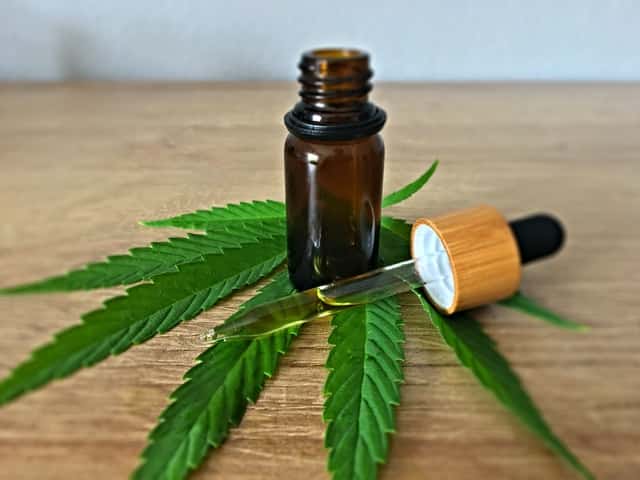Getting a good night’s sleep is crucial for our optimal functioning and yet, insomnia is one of the most commonly reported sleep disorders. Early studies linking CBD, THC, and good quality sleep may change this.
CBD oil is one of the cannabinoid products available today as a legal, therapeutic aid. CBD (also known as cannabidiol) products are derived from the cannabis plant but don’t contain THC so users won’t experience the ‘high’ that is commonly associated with cannabis consumption. CBD interacts with our body’s endocannabinoid system (ECS) to help achieve a physiological state of balance. Since the ECS was only identified in the early 1990s, research is still in the early stages but shows hopeful results. Researchers are now exploring the use of CBD in treating the physiological symptoms that often prevent us from falling asleep such as chronic pain, anxiety and stress.
While CBD has been the focus of research so far, tetrahydrocannabinol (THC) is starting to be studied more. For example, a human-made THC equivalent, dronabinol, has shown some early signs of helping with obstructive sleep apnoea. And nabilone, another synthetic cannabis product, seems to help with PTSD-related sleep problems. There’s also evidence that THC can help users fall asleep, as it can make users drowsy.
How Could CBD Oil Help You Sleep Better?
Sometimes, sleep eludes us because of a late cup of coffee or doom scrolling on the internet. At other times, sleep cycle disrupters can be trickier to address. For instance, people who suffer from conditions that leave them with chronic pain or who struggle with anxiety have a tougher time getting the rest they need. CBD oil may help to ease some of the physiological discomforts related to these conditions to help the body relax and rest.
CBD and Chronic Pain
Chronic pain or discomfort from conditions like migraines or sciatica make it difficult to achieve a state of relaxation that you need for sleep. Lower back pain is another common complaint that stops people from sleeping comfortably.
A study looking at cannabinoids as an anti-inflammatory drug made some correlations between taking CBD and pain relief. CBD interacts with certain brain receptors in order to reduce inflammation and pain in the body. The idea is that reduced pain can help people relax enough to rest. While research is still in the early stages, a 2018 review made a strong case for using cannabinoids to treat migraines, as it noted a reduction in pain and frequency of occurrence.
CBD Calms Anxieties
Worries and fears and that thing you said to someone twelve years ago looping around in your brain make it tough to drop off into restful sleep. Then, getting less than the optimal seven to nine hours of rest can heighten anxiety further. It’s a vicious cycle.
While researching the effectiveness of CBD in treating anxiety, one study showed that it was able to reduce key physiological symptoms of anxiety. For instance, CBD assisted in slowing down the heart rate and, thanks to its interactions with receptors in the central nervous system, increasing serotonin production (also known as the happy hormone).
Both anxiety and stress are very closely linked and a study in 2019 explored the effectiveness of CBD in treating PTSD. At the end of the eight week treatment period, it was noted that ninety-one percent of participants showed reduced symptoms. This was one of the first studies that considered using CBD for PTSD treatment. Together with this, higher levels of THC reduce the amount of REM sleep, which means fewer dreams.
Marijuana for Insomnia
Insomnia or chronic sleeplessness is linked to high cortisol levels which is a stress hormone. Cortisol reduces the quality of your sleep and pushes your body to stay alert. Early evidence suggests that CBD may be able to control these levels by limiting cortisol release. In exploring the possibility of cannabidiol as a treatment for anxiety, it was found that those who imbibed moderate quantities of CBD oil every day showed lower cortisol levels. This not only brought down anxiety levels in the participants but also improved sleep.
There are a number of ways that THC and CBD work to help people sleep. TCH makes you drowsy and reduces dreams, helping you get to sleep, and stay asleep. CBD helps reduce anxiety and any physical pain. Together, they might be the solution to your insomnia.

Using CBD Oil as a Sleep Aid
CBD and THC are continuing to gain widespread acceptance as an alternative therapeutic aid. They can be prescribed through clinics such as here at The Pain Clinic and GPs. In New Zealand, CBD and THC are available in oils and capsules. As they are processed by everybody a little differently, in order to best utilise their therapeutic benefits, you should consult a medical practitioner for a prescription.
Once your sleep cycle and the causes of its disruption have been assessed, your doctor will be able to determine whether CBD or THC will help, and make the necessary dosage recommendations.
Consumption is fairly straightforward. CBD and THC can be taken at any point during the day and you can tailor them to suit your routine and sleep cycles.
CBD and THC May Improve Your Sleep (and Life)
When your body gets a good quality of sleep for the recommended number of hours, it is able to heal from the activity of the day. This is a crucial part of a healthy routine. When we don’t have the opportunity to rest or temporarily lose the ability to fall asleep, you notice the effects in your daily life almost immediately. Not getting enough sleep also leaves your body at risk both physically and mentally. While research into using CBD and THC to help us sleep better is just beginning, the results shown so far are hopeful, offering a light at the end of the tunnel for insomniacs.
Contact the team at The Pain Clinic today to see if we can’t help.





